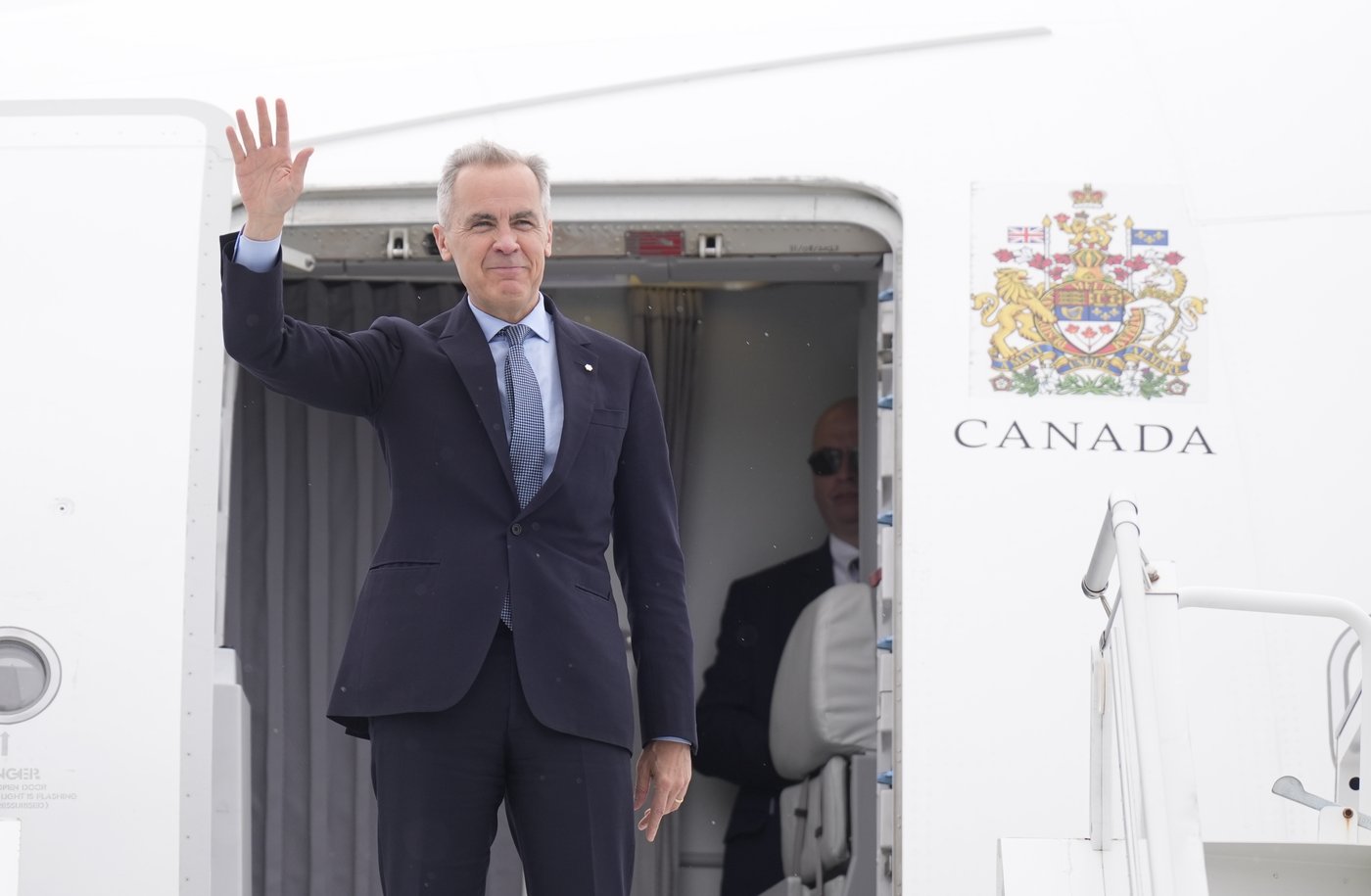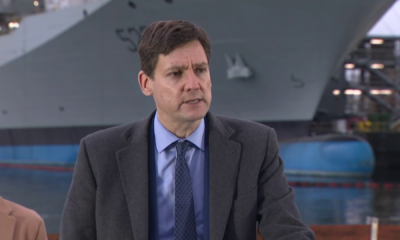Local News
B.C. gov’t not expecting immediate deal to end U.S. trade war

A high-stakes meeting between Prime Minister Mark Carney and United States President Donald Trump on Tuesday is being closely watched by the world, and especially politicians in Victoria.
Ravi Kahlon, minister of housing and municipal affairs, tells 1130 NewsRadio the province is being pragmatic as Carney takes the first step to sort things out amid a tense trade war.
“We’re not expecting an agreement, and we’re also realistic that any agreement made with President Trump can be changed with a tweet the next day. Our hope is that they can establish clear communication lines, perhaps figure out why all these tariffs are coming in, and at least that gives us a baseline for moving forward,” Kahlon said Tuesday.
“But the reality is, no matter what happens in this conversation, the relationship with the U.S. is fundamentally changed. I don’t expect the prime minister to come back and say, ‘Everything is back to normal.’ It’s not going to happen. The president has made that clear. We just need to prepare for what comes after.”
Kahlon says this is the road to nailing down a resolution, and he admits he doesn’t know how long that will take.
“The changing nature of the president, we hear some things from the administration, then the next day we hear something totally different from the president.”
The minister explains that while only being in office for more than 100 days in his second term, Trump has caused nothing but chaos as the B.C. government is forced to pivot on the fly.
“They’re opening up an economic war, not only with Canada, but the entire world at the same time. It’s hard to know exactly what the preferred outcome is for the president, and that’s what makes it challenging. We don’t know what they’re going to do day-to-day. We don’t know when we wake up what message on social media the president will have,” Kahlon explained.
“It’s hard to even negotiate when the people that you’re negotiating with may get overturned by the president in a later conversation, and that’s why I think it’s going to be a challenge to get any agreement. Because any handshake agreement can change instantly.”
Kahlon says the key for B.C. is to rely on its resources and to increase diversified trade with other countries. Kahlon adds that includes Japan and Vietnam.
“We’re going to continue to find ways to adjust … so I’m confident about the future. We’ve got teams scaled up across the world that are reaching out to different partners for different types of products. Homebuilding, for example, 40 to 60 per cent of our supplies come from the U.S. when we’re building homes,” he said. “We have teams now on the ground in different parts of the world that are starting to source products that our companies can buy. So, we’re going to be planning a whole host of trade missions to get our teams out to different countries. It was just easy for us to go to the U.S. because of our strong partnership, but it doesn’t mean that they’re the only ones in town.”
He points out that breaking down interprovincial trade barriers will also help, something Carney has promised to do by July 1.
Kahlon understands people are worried about their jobs, especially in sectors like forestry and automotive, but he adds they’re trying to protect B.C. jobs as soon as possible instead of just waiting for tariffs to be dropped.
“The impact will be real. The impact on the forest industry will probably be one of the first places where we’ll feel it here in B.C. We have been working with the federal government, there is in fact is a package that is being developed right now that will be ready to deploy, and this is the benefit of having a Team Canada approach.”
That federal package is funding for provinces trying to offset any potential losses from the trade war. More details on that are expected once Carney names his new cabinet later this month.
For now, Kahlon says B.C. isn’t seeing major job losses, yet.
“But we are seeing investment decisions not being made. Because of the uncertainty, people don’t know the future, and that’s not only here in British Columbia — this is on the U.S. side as well,” he explained.
“We’ve been meeting with businesses which do business on both sides who say, ‘How do you make a decision when you don’t know what the trade rules are going to be?’ This is having an impact in British Columbia, but it’s having a significant impact on the U.S. And this is what we’ve been saying to Americans all along that our two countries are so interlinked that any pain Canada feels, will be felt in the United States in a bigger way.”
Kahlon says on a personal level, this trade war has been difficult. He adds that he has a lot of family and friends stateside, and the jokes of Canada becoming the 51st state have turned into regular apologies on behalf of the president. He says his son, who was supposed to play basketball in the U.S., will no longer be doing so, and Kahlon will not be travelling there either.
The silver lining, he explains, is that Canadians have more pride than ever before.
“The amount of Canadian flags I’ve seen go up in my neighbourhood is remarkable. I’m seeing people changing their buying behaviours, people are not going to the U.S. People are choosing to cancel their trips,” he said.
“When you go to Costco, like I did last week, you see people lined up looking at the back of the box, not to see the calorie intake, but to be able to see what country this was produced in. People are responding and generally people understand we are a strong country.”
Kahlon says that once the new federal cabinet is named, B.C.’s premier and other stakeholders will hold meetings to figure out plans to strengthen the economy, with hopes of rolling out new measures in a matter of months.
Softwood lumber industry needs to be prioritized: B.C. minister
Meanwhile, B.C.’s forestry minister, Ravi Parmar, says Carney needs to prioritize B.C>’s softwood lumber industry during his talk with Trump.
Parmar says the forestry sector is hoping for some clarity as a result of the meeting, since uncertainty is driving away customers and investments. Industry representatives say that the most damaging thing to the sector right now is not knowing what’s coming next.
One lumber industry representative told The Leader Spirit in an interview, “If there’s a new trade agreement on the way, let’s just get it over with.”
Other industries agree as Canada reevaluates its relationship with the United States going forward.
Western Canadian director for the United Steelworkers, Scott Lunny, tells 1130 NewsRadio that if the goal for the Trump administration is to rewrite the free trade agreement, we should “quit the nonsense and get on with that.”
“The on-again and off-again tariffs have created massive uncertainty for businesses, customers, and investments on both sides of the border,” Lunny added.
UBC political scientist professor Stewart Prest told 1130 that Carney needs to stand his ground firmly and politely if there are disagreements with Trump.
With files from Srushti Gangdev.












